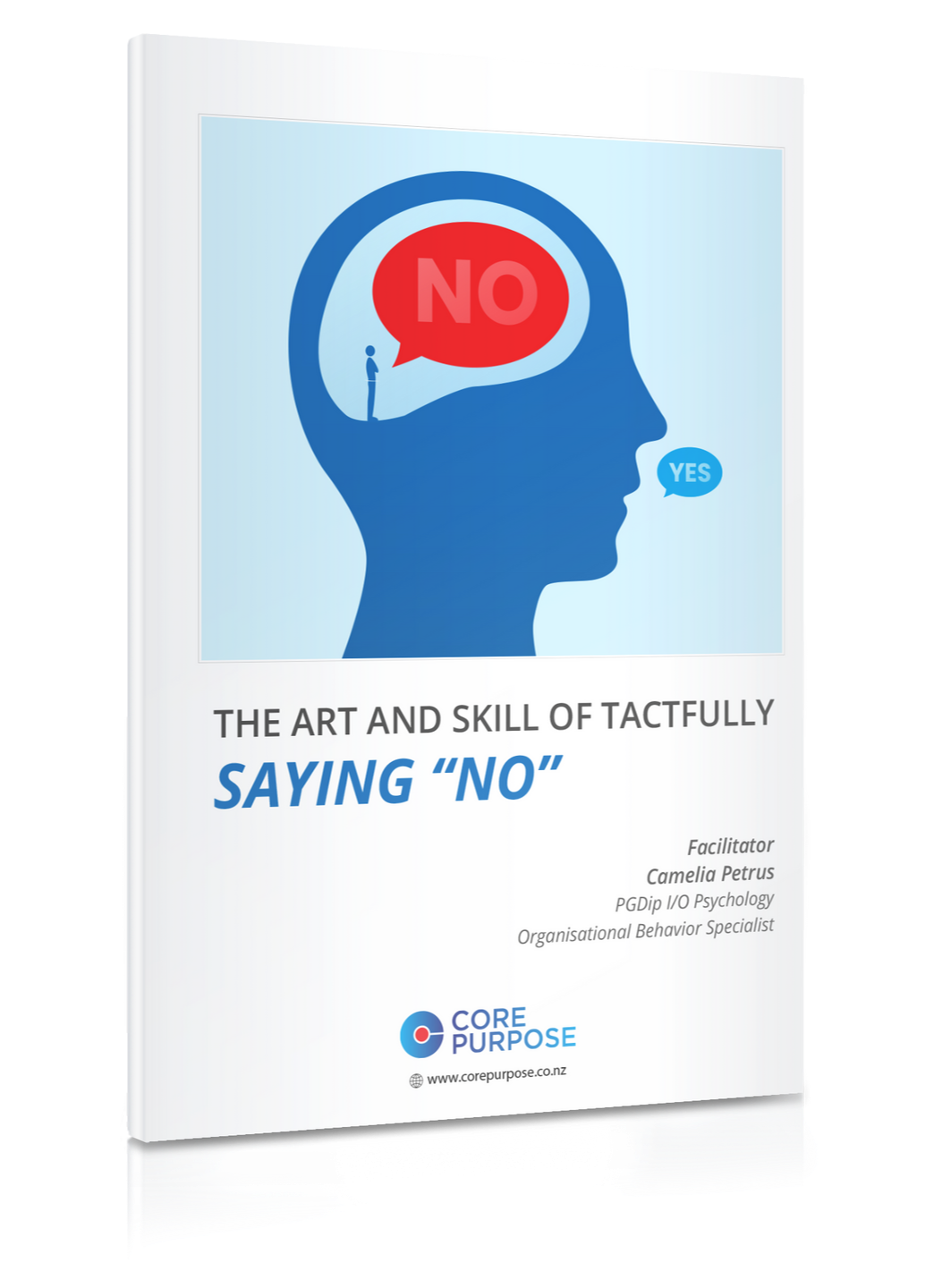Description
Length: 90 minute
The content of this webinar is based on the applied psychology of workplace relationships and communication based on the latest scientific insights.
Every day we receive requests, opportunities, and invitations. Everything from a slight suggestion to an all-out playing. How we respond to these will determine our days: the commitments we can fulfill, and the goals we can accomplish.
In my life I have learned the hard way how vital is the art of saying NO.
You see… whether it is a client making an almost impossible request, or your colleague asking for help on a project when you feel already overwhelmed with your own work, or even a friend wanting to hang out with you on a rainy day when you prefer to read a book, saying “no” can be uncomfortable. Before learning these techniques, I felt uncomfortable to say “no” to anyone. Now I've learned how to turn requests down in a tactful way.
Saying NO
Think about the times you might have come up with a fictional excuse to say “no”, by saying something such as: there is a family emergency, or my leg hurts, or the receptionist is not here today, or try tomorrow as I am in the middle of something. Actually, you can be totally upfront with them.
It can be a little uncomfortable to be honest with somebody, especially if you haven't trained that muscle before. When you do it right, you end up building a much stronger connection with them.
Saying YES
At times you might feel pressured into saying “yes” even when you know you cannot.
It's great when you can and want to say “yes”:
“Can you fix my child’s desk?” “Yes.”
“Can you fix my fence?” “Yes.”
“Would you like a coffee?” “Yes.”
“Can you help me with this?” “Yes.”
“Do you want to hang out with me?” “Maybe, yes”.
But when you keep saying “yes” to every request, eventually those people’s priorities become your own and you start to forget about the commitments that you made in your own life.
When you are clear on your values and your goals it is easier to say ”no” and it feels right when you do so.
That's why creating boundaries is so important.
This course is for you if you:
- do not know how to say “no” upfront, without the fear for hurting feelings, or
- feel pressured into saying “yes” and you do say “yes” even when you do not want to.
Learning outcomes:
- Understand why we say ‘yes’ when we want to say ‘no’
- Discover the emotional process that leads to saying ‘yes’ when you mean ‘no’
- Explore a new thought process to be employed when a request or a demand is being made of you
- Learn how to honour your own needs and values
- Practice saying NO without feeling guilty
- A Take-Home Message
Facilitator
Camelia Petrus brings a wealth of tools, experience, and perspective to her work in Industrial Organisational Psychology, Leadership, Workplace Behaviour, Non-Violent Communication and Psychology of Wellbeing.
Camelia’s interests are in employee wellbeing and engagement, leadership key competences and workplace behaviour. She provides employers with psychometric insights in the areas of Leadership Development, Workplace Behaviour, Recruitment, Sales and Customer Service, Client Relationship, Workplace Emotional Climate, and trains HR professionals in test interpretation.
She is a member of NZ Positive Psychology Association (NZAPP), member of Change Management Institute NZ and partner with OPRA Psychology Group Wellington and the Regional Business Partners Network.
She leads work with individuals and organisations in NZ.



